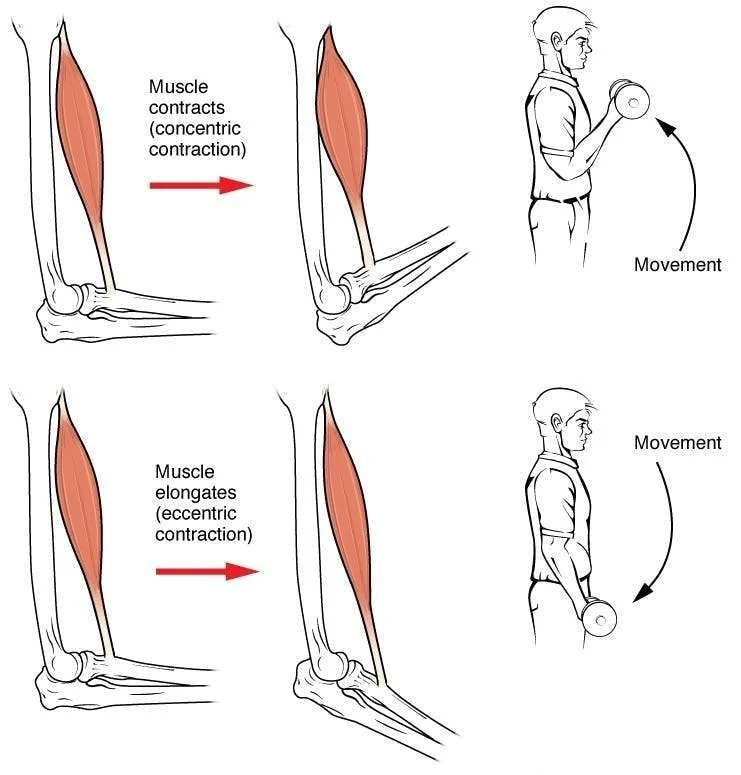Why do we get muscle cramps after heavy exercise?
The short answer
The two most common reasons for muscle cramps after heavy exercise are overworking the muscles, which disrupts the balance of contraction and relaxation signals, and losing too much sodium through sweat, which affects the electrical signals needed for muscle contractions.
The long answer
We've all been there. You've got your feet kicked up after a long day when suddenly, out of nowhere, a muscle painfully starts to seize up. Ouch!
"Bishop Loughlin Games - Armory - Track & Field" by Steven Pisano is licensed under CC BY 2.0.
A muscle cramp is an involuntary, spontaneous, chaotic muscle contraction. While they're painful and no fun, they're also common and go away on their own after a minute or so.
As it turns out, there are a LOT of different reasons why people experience muscle cramps, including (but not limited to):
over-exercise
nerve compression
low blood flow
hypothyroidism
getting kidney dialysis
diabetes
physical inactivity
certain medications
menstruation
pregnancy
alcoholism
older age
For this article, I'm going to focus on exercise-associated muscle cramps, since those seem to be the most universal muscle cramps.
Let's start with a brief and over-simplified explainer on how muscles contract and relax.
How do muscles contract and relax?
Muscles either contract or relax depending on what your body needs to do.
"1015 Types of Contraction new" by OpenStax is licensed under CC BY 4.0.
There are essentially five basic steps to activating a skeletal muscle (voluntary muscles attached to bones that help you move) to contract or relax:
Your brain sends an electrical signal through your spinal cord.
The electrical signal travels along a nerve cell called a motor neuron.
Once the signal reaches the end of the motor neuron, it triggers the release of a neurotransmitter, which binds to the muscle fiber.
The binding opens channels in the muscle fiber's membrane, allowing sodium ions to rush in. This sudden flow of sodium changes the electrical charge inside the muscle fiber.
This electrical change triggers a series of events inside the muscle fiber, causing it to contract. When the signal stops, the muscle fiber relaxes.
If you're more of a visual learner, this video does a great job explaining this process.
Why do we get muscle cramps after heavy exercise?
The exact causes of exercise-related muscle cramps aren't fully understood, but here are the two most common reasons why you might cramp after a period of heavy exercise.
Reason #1: You've overworked a muscle.
When you exercise intensely or for a long period, your muscles can become overworked, especially if you push them beyond their usual limits or don't have enough training.
When your muscles are tired, they send more "contract" signals to the spinal cord to protect themselves from overstretching. At the same time, the signals that usually tell the muscles to relax become weaker. This imbalance, with more contraction signals and fewer relaxation signals, causes the muscles to stay contracted, leading to cramps.
So, when your muscles are overworked, they become tired and send more "contract" signals while reducing "relax" signals, resulting in muscle cramps.
Reason #2: You're low in sodium.
Electrolytes like sodium, potassium, calcium, and magnesium are essential for transmitting the electrical signals necessary for muscle contractions. Sodium is particularly important because it helps maintain the nerve's baseline electrical charge, which is crucial for triggering muscle contractions.
During exercise, sweating leads to the loss of sodium and other electrolytes. If sodium levels drop too low, it can disrupt these electrical signals, making the nerves more likely to fire off electrical signals improperly. This instability can lead to muscle cramps.
🧠 Bonus brain points
Does pickle juice help with muscle cramps?
As it turns out, pickle juice is an effective antidote to muscle cramps. A 2010 study explored whether drinking pickle juice would be effective at shortening the duration of muscle cramps. The results showed that drinking about 2.5 fluid ounces (74 ml) of pickle juice relieved a cramp 45% faster than when no fluid was consumed.
The researchers ruled out that simple hydration was the reason why (drinking water alone didn't impact cramp duration), and the effect happened too quickly to be from the juice's electrolytes. Therefore, the researchers speculated that pickle juice's effectiveness is likely caused by the acid triggering a reflex in your mouth and throat which might reduce motor neuron activity at the muscle cramp.
So when you're in a pickle (with a cramping muscle), grab a pickle. 🥒
Curious about how the world works?
Today You Should Know is a free, weekly email newsletter designed to help you learn something new every Friday.
Subscribe today 👇
Check out some other curious questions:
Sources
Behm, D. G., Peach, A., Maddigan, M., Aboodarda, S. J., DiSanto, M. C., Button, D. C., & Maffiuletti, N. A. (2013). Massage and stretching reduce spinal reflex excitability without affecting twitch contractile properties. Journal of Electromyography and Kinesiology, 23(5), 1215–1221. https://doi.org/10.1016/j.jelekin.2013.05.002
Harvard University. (2024, May 9). Salt and Sodium. The Nutrition Source. https://nutritionsource.hsph.harvard.edu/salt-and-sodium/
Icahn School of Medicine at Mount Sinai. (n.d.). Muscle cramps. Mount Sinai Health System. https://www.mountsinai.org/health-library/symptoms/muscle-cramps
Maughan, R. J., & Shirreffs, S. M. (2019). Muscle Cramping During Exercise: Causes, Solutions, and Questions Remaining. Sports Medicine, 49(S2), 115–124. https://doi.org/10.1007/s40279-019-01162-1
Mayo Foundation for Medical Education and Research. (2023, March 7). Muscle cramp. Mayo Clinic. https://www.mayoclinic.org/diseases-conditions/muscle-cramp/symptoms-causes/syc-20350820
McCallum, K. (2022, February 28). Muscle Cramps: 8 Things That Cause Them & 4 Ways to Stop Them. Houston Methodist. https://www.houstonmethodist.org/blog/articles/2022/feb/muscle-cramps-8-things-that-cause-them-4-ways-to-stop-them/
Miller, K. C., Mack, G. W., Knight, K. L., Hopkins, J. T., Draper, D. O., Fields, P. J., & Hunter, I. (2010). Reflex Inhibition of Electrically Induced Muscle Cramps in Hypohydrated Humans. Medicine & Science in Sports & Exercise, 42(5), 953–961. https://doi.org/10.1249/mss.0b013e3181c0647e
Nelson, N. L., & Churilla, J. R. (2016). A narrative review of exercise-associated muscle cramps: Factors that contribute to neuromuscular fatigue and management implications. Muscle & Nerve, 54(2), 177–185. https://doi.org/10.1002/mus.25176
U.S. National Library of Medicine. (n.d.). Muscle Cramps. MedlinePlus. https://medlineplus.gov/musclecramps.html
Visible Body. (2022b, December 2). Visible Body: Learn | How does a muscle contract?. YouTube. https://www.youtube.com/watch?v=OmmGGquyw_I&ab_channel=VisibleBody
Wagner, T., Behnia, N., Ancheta, W.-K. L., Shen, R., Farrokhi, S., & Powers, C. M. (2010). Strengthening and Neuromuscular Reeducation of the Gluteus Maximus in a Triathlete With Exercise-Associated Cramping of the Hamstrings. Journal of Orthopaedic & Sports Physical Therapy, 40(2), 112–119. https://doi.org/10.2519/jospt.2010.3110
Wakim, S., & Grewal, M. (2022, May 7). 15.4: Muscle contraction. Biology LibreTexts. https://bio.libretexts.org/Bookshelves/Human_Biology/Human_Biology_(Wakim_and_Grewal)/15%3A_Muscular_System/15.4%3A_Muscle_Contraction







It’s like an American accent but with calendars.